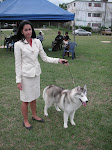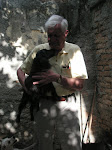Scavanging
Decades of Discord
The cold war was about 13 years old when Fidel Castro came
to power in Cuba, pushing a host of changes in how the island nation thinks and
acts, and precipitating a long period of enmity between Cuba and the US. That contentious era continues to this day,
and is now 54 years old and shows few signs of moderating.
Oh, a few hopeful signs of better relations between the two
counties have made news recently. The
negotiations to normalize postal cooperation are the most recent. Right now if you if you mail a package to
Cuba, you pay $10 per pound postage and get no guarantee of delivery within
Cuba from USPS, All they'll promise is
to get it to Cuba, and they don't promise delivery within Cuba. A postal cooperation would be a boon to people
on both sides of the Florida Straits.
But it is still a baby step toward normal relations.
Obama's relaxation of the crazy rules affecting travelers is
another small, but welcome change. I do,
however, think it was done more to poke a finger in the eye of his US
opposition (Republican conservatives) than to bring about a new era of
friendship. But don't get me wrong; I
support relaxation of the travel rules.
I hate to say it, but I really believe the long term spat
had begun to widen the cultural differences that separate the two
countries. In Cuba, all those years of
authoritarian government have produced an almost cynical pessimism among Cubans
hoping for a change. The prevailing
attitude seems to be, "It is what it is," and that seems to be
replacing any advocacy for improvement.
One the US side, our Congress and political parties, who
never did much anyway, have now found a detent in which a minority of elected
legislators can prevent nearly any bill from being passed. This minority is dead set against admitting
immigrants to the US, and this includes Cubans.
So, any suggestion we moderate our tough policy against Cuba is met with
legislative deadlock. There'll be no easing
of restrictions under the law until our Congress grows up and decides to work
for the good of the country on needed legislation.
Clearly, if the people on both sides don't expect a
rapprochement, it isn't likely to happen.
Thus a customs agent or a postal inspector in Cuba can and does stop a
package for the tiniest infraction. An
immigration officer in the US will apply the letter of the law and send a Cuban
refugee rafter back home, even after he crossed 90 miles of rough water at
great peril and now stands only ankle deep in the waves lapping at our
shore. But, once the Cuban's feet are
dry and he stands on US territory, the refugee gets special treatment no other
foreign national gets. He gets instantly
a green card permitting him the right to work in the US, practically free
health care, and counseling to help him achieve a new productive life in
America.
That almost sounds incongruous. Why whisk an arriving man back to Cuba if he
is still in the water on the one hand and yet give him a warm welcome and much
help to settle in here if he actually has made it all the way to shore? But who ever said government policies on
either side make sense?
On a practical level, if you're trying to help the animals
of Cuba, you might want to send medicines and medical supplies from here to
there. But you can't without jumping
through bureaucratic hoops, both Cuban and American. You might want to send a computer for animal
protectors there to use in communicating with their American counterparts. You might want to rehab a sick puppy and send
him to an American home, but you think twice before running the gauntlet of
government and veterinary rules and regulations enforced by stern faced airport
and airline people. And the scrutiny of
Americans in Cuba is more severe than for others while vice versa is also true.
You can title this lament, Leslie's Complaint, for I have
offered no real solution. All we can do
is try to comply with red tape, expect delays, refusals, and next to no
official help in doing what we want to do.
It's easy to see that everything is more difficult and everything takes
longer in both countries if Cuban and American cooperation is involved.
In both Florida and Havana live two warring camps—those who
want normalization between the two countries and those who don't. I decided a long time ago not to take sides
in those political fights, as it is easy to make enemies
I just wish someone could show me how this bitter dispute
has helped even one person on either side or how it has helped even one sick,
stray dog begging for food in a Havana public park.
Les Inglis































































































No comments:
Post a Comment